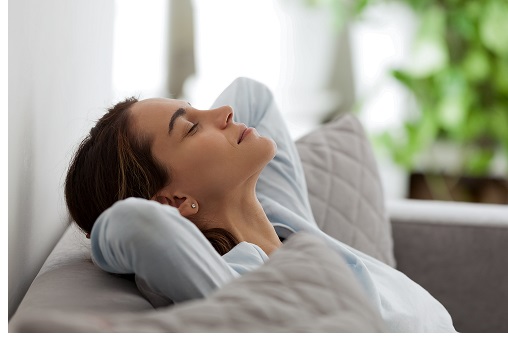Napping: Guilt-Free Pleasure Protects the Heart and Sharpens the Mind
November 6, 2019
 A tranquil afternoon nap is a wonderful respite from the day’s hustle and bustle, a chance for your mind and body to unwind, relax and take a breather. Joan loves her daily nap - a habit she developed when our four kids were infants. At the time the afternoon nap was essential for the mental well-being of the children … as well as the mom. Now, a new study out of Switzerland gives us another excuse to make time for a daytime snooze: napping once or twice a week appears to lower the risk of heart attack and stroke.
A tranquil afternoon nap is a wonderful respite from the day’s hustle and bustle, a chance for your mind and body to unwind, relax and take a breather. Joan loves her daily nap - a habit she developed when our four kids were infants. At the time the afternoon nap was essential for the mental well-being of the children … as well as the mom. Now, a new study out of Switzerland gives us another excuse to make time for a daytime snooze: napping once or twice a week appears to lower the risk of heart attack and stroke.
These Swiss researchers found that napping even for as little as 20 minutes, at least one or two times per week conferred the full benefit for reducing cardiovascular risk. This study, published in the medical journal Heart, analyzed the links between napping and the risk for serious cardiovascular events like heart attacks and strokes, among a cohort of 3,462 randomly selected residents of Lausanne, Switzerland.
These study participants were between 35 and 75 years of age, and they were followed for five years or more. More than half (58%) of the participants did not nap on a regular basis; 19% took one or two naps per week; 12% took three to five naps per week, and 11% napped six or seven times weekly.
The study concluded that people who napped even occasionally (once or twice weekly) reduced their risk of having an adverse cardiovascular event by 48% compared to individuals who didn’t nap at all.
This association still held true, even after controlling for other confounding factors including age, sleep apnea, obesity, average sleep duration at night, high cholesterol and high blood pressure. Somewhat surprisingly, the nap duration did not affect the degree of cardio-protection bestowed.
Because this was an observational study, not a randomized trial, it does not definitively establish a cause-and-effect relationship between napping and good cardiovascular health. In other words, it only tells us that people who nap at least once or twice a week tend to have healthier hearts than those who don’t nap. Still, it’s good enough reason for me to continue to indulge in an afternoon nap whenever I get the chance.
Sleep on It
Many other scientific studies on the benefits of napping have legitimized the siesta. A 20 to 45-minute mini-vacation into dreamland during the day can reinvigorate the mind, make up for a poor night’s sleep, and help us to feel happier and healthier. So, go ahead and flop down for a spell after lunch, or anytime you feel the need. And importantly, don’t feel guilty about your nap - this is time well spent.
“I’ll sleep on it” is a sentiment sometimes used to defer a decision and give the person some time to mull it over for a while. A recent study out of the United Kingdom found that a daytime nap before a big decision is a scientifically sound strategy. This study, published in the Journal of Sleep Research, discovered that the subconscious mind busily analyzes information during sleep, even during a daytime nap. This information processing that churns away unconsciously in the sleeping mind can lead to important new insights, and better decisionmaking upon awakening.
In this study, a 90-minute daytime nap seemed to improve the subsequent cognitive performance in study participants. The human brain gathers a large amount of information while awake, and during sleep our mind analyzes, organizes and integrates the data in a much deeper way, even though we are not conscious of the process.
By now, I hope I’ve convinced you to grant yourself the luxury of an occasional nap of 20 minutes or more, at least once or twice a week. If you do, you’ll be in good company. Some of the most brilliant people in history were famous nappers including Leonard da Vinci, Albert Einstein, Winston Churchill, John F. Kennedy, Eleanor Roosevelt, Thomas Edison, and Aristotle.
In Good Health,
James O'Keefe, MD and Joan O'Keefe, RD





